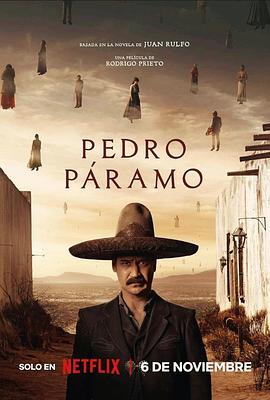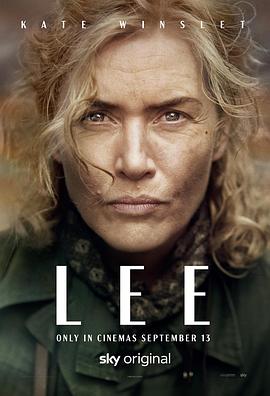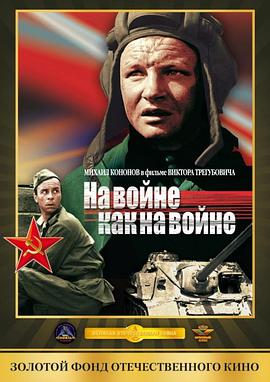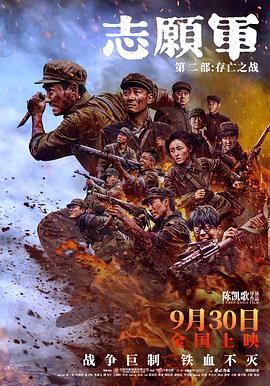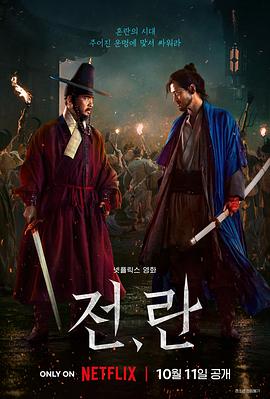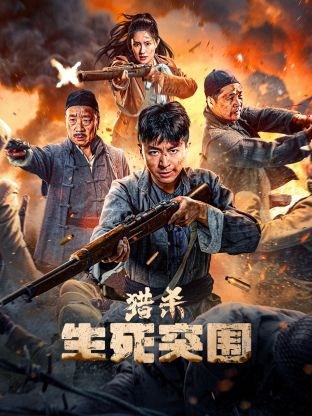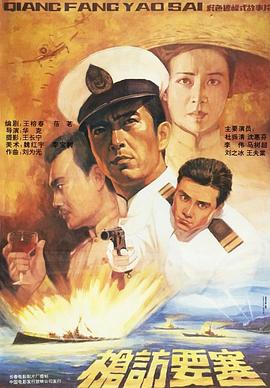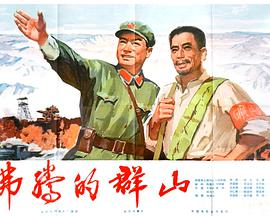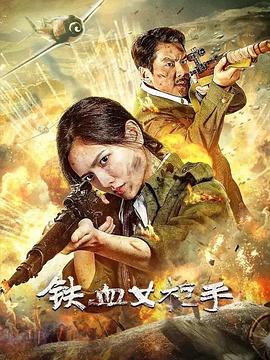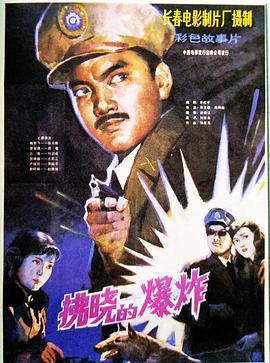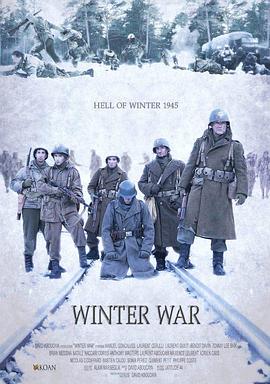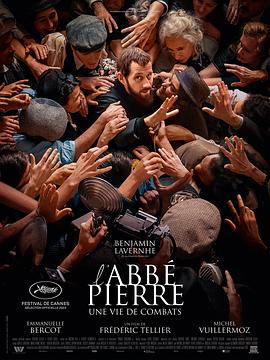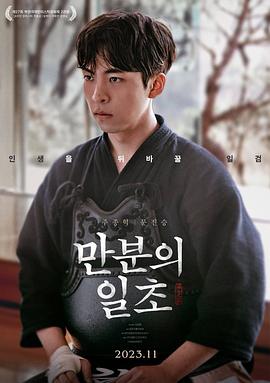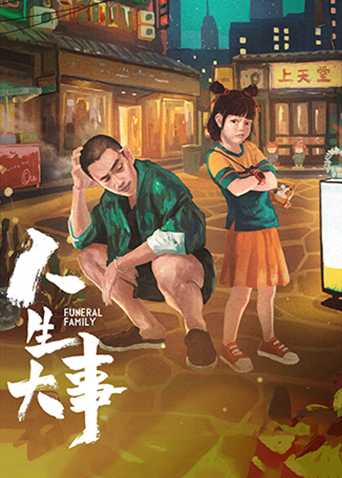
导演:
上映:
未知
备注:
HD
TAG:
未知
剧情:
In 1961, Stanislaw Rozewicz created the novella film "Birth Certificate" in cooperation with his brother, Taduesz Rozewicz as screenwriter. Such brother tandems are rare in the history of film but aside from family ties, Stanislaw (born in 1924) and Taduesz (born in 1921) were mutually bound by their love for the cinema. They were born and grew up in Radomsk, a small town which had "its madmen and its saints" and most importanly, the "Kinema" cinema, as Stanislaw recalls: for him cinema is "heaven, the whole world, enchantment". Tadeusz says he considers cinema both a charming market stall and a mysterious temple. "All this savage land has always attracted and fascinated me," he says. "I am devoured by cinema and I devour cinema; I'm a cinema eater." But Taduesz Rozewicz, an eminent writer, admits this unique form of cooperation was a problem to him: "It is the presence of the other person not only in the process of writing, but at its very core, which is inserperable for me from absolute solitude." Some scenes the brothers wrote together; others were created by the writer himself, following discussions with the director. But from the perspective of time, it is "Birth Certificate", rather than "Echo" or "The Wicked Gate", that Taduesz describes as his most intimate film. This is understandable. The tradgey from September 1939 in Poland was for the Rozewicz brothers their personal "birth certificate". When working on the film, the director said "This time it is all about shaking off, getting rid of the psychological burden which the war was for all of us. ... Cooperation with my brother was in this case easier, as we share many war memories. We wanted to show to adult viewers a picture of war as seen by a child. ... In reality, it is the adults who created the real world of massacres. Children beheld the horrors coming back to life, exhumed from underneath the ground, overwhelming the earth." The principle of composition of "Birth Certificate" is not obvious. When watching a novella film, we tend to think in terms of traditional theatre. We expect that a miniature story will finish with a sharp point; the three film novellas in Rozewicz's work lack this feature. We do not know what will be happen to the boy making his alone through the forest towards the end of "On the Road". We do not know whether in "Letter from the Camp", the help offered by the small heroes to a Soviet prisoner will rescue him from the unknown fate of his compatriots. The fate of the Jewish girl from "Drop of Blood" is also unclear. Will she keep her new impersonation as "Marysia Malinowska"? Or will the Nazis make her into a representative of the "Nordic race"? Those questions were asked by the director for a reason. He preceived war as chaos and perdition, and not as linear history that could be reflected in a plot. Although "Birth Certificate" is saturated with moral content, it does not aim to be a morality play. But with the immense pressure of reality, no varient of fate should be excluded. This approached can be compared wth Krzysztof Kieslowski's "Blind Chance" 25 years later, which pictured dramatic choices of a different era. The film novella "On the Road" has a very sparing plot, but it drew special attention of the reviewers. The ominating overtone of the war films created by the Polish Film School at that time should be kept in mind. Mainly owing to Wajda, those films dealt with romantic heritage. They were permeated with pathos, bitterness, and irony. Rozewicz is an extraordinary artist. When narrating a story about a boy lost in a war zone, carrying some documents from the regiment office as if they were a treasure, the narrator in "On the Road" discovers rough prose where one should find poetry. And suddenly, the irrational touches this rather tame world. The boy, who until that moment resembled a Polish version of the Good Soldier Schweik, sets off, like Don Quixote, for his first and last battle. A critic described it as "an absurd gesture and someone else could surely use it to criticise the Polish style of dying. ... But the Rozewicz brothers do no accuse: they only compose an elegy for the picturesque peasant-soldier, probably the most important veteran of the Polish war of 1939-1945." "Birth Certificate" is not a lofty statement about national imponderabilia. The film reveals a plebeian perspective which Aleksander Jackieqicz once contrasted with those "lyrical lamentations" inherent in the Kordian tradition. However, a historical overview of Rozewicz's work shows that the distinctive style does not signify a fundamental difference in illustrating the Polish September. Just as the memorable scene from Wajda's "Lotna" was in fact an expression of desperation and distress, the same emotions permeate the final scene of "Birth Certificate". These are not ideological concepts, though once described as such and fervently debated, but rather psychological creations. In this specific case, observes Witold Zalewski, it is not about manifesting knightly pride, but about a gesture of a simple man who does not agree to be enslaved. The novella "Drop of Blood" is, with Aleksander Ford's "Border Street", one of the first narrations of the fate of the Polish Jews during the Nazi occupation. The story about a girl literally looking for her place on earth has a dramatic dimension. Especially in the age of today's journalistic disputes, often manipulative, lacking in empathy and imbued with bad will, Rozewicz's story from the past shocks with its authenticity. The small herione of the story is the only one who survives a German raid on her family home. Physical survial does not, however, mean a return to normality. Her frightened departure from the rubbish dump that was her hideout lead her to a ruined apartment. Her walk around it is painful because still fresh signs of life are mixed with evidence of annihilation. Help is needed, but Mirka does not know anyone in the outside world. Her subsequent attempts express the state of the fugitive's spirits - from hope and faith, moving to doubt, a sense of oppression, and thickening fear, and finally to despair. At the same time, the Jewish girl's search for refuge resembles the state of Polish society. The appearance of Mirka results in confusion, and later, trouble. This was already signalled by Rozewicz in an exceptional scene from "Letter from the Camp" in which the boy's neighbour, seeing a fugitive Russian soldier, retreats immediately, admitting that "Now, people worry only about themselves." Such embarassing excuses mask fear. During the occupation, no one feels safe. Neither social status not the aegis of a charity organisation protects against repression. We see the potential guardians of Mirka passing her back and forth among themselves. These are friendly hands but they cannot offer strong support. The story takes place on that thin line between solidarity and heroism. Solidarity arises spontaneously, but only some are capable of heroism. Help for the girl does not always result from compassion; sometimes it is based on past relations and personal ties (a neighbour of the doctor takes in the fugitive for a few days because of past friendship). Rozewicz portrays all of this in a subtle way; even the smallest gesture has significance. Take, for example, the conversation with a stranger on the train: short, as if jotted down on the margin, but so full of tension. And earlier, a peculiar examination of Polishness: the "Holy Father" prayer forced on Mirka by the village boys to check that she is not a Jew. Would not rising to the challenge mean a death sentance? Viewed after many years, "Birth Certificate" discloses yet another quality that is not present in the works of the Polish School, but is prominent in later B-class war films. This is the picture of everyday life during the war and occupation outlined in the three novellas. It harmonises with the logic of speaking about "life after life". Small heroes of Rozewicz suddenly enter the reality of war, with no experience or scale with which to compare it. For them, the present is a natural extension of and at the same time a complete negation of the past. Consider the sleey small-town marketplace, through which armoured columns will shortly pass. Or meet the German motorcyclists, who look like aliens from outer space - a picture taken from an autopsy because this is how Stanislaw and Taduesz perceived the first Germans they ever met. Note the blurred silhouettes of people against a white wall who are being shot - at first they are shocking, but soon they will probably become a part of the grim landscape. In the city centre stands a prisoner camp on a sodden bog ("People perish likes flies; the bodies are transported during the night"); in the street the childern are running after a coal wagon to collect some precious pieces of fuel. There's a bustle around some food (a boy reproaches his younger brother's actions by singing: "The warrant officer's son is begging in front of the church? I'm going to tell mother!"); and the kitchen, which one evening becomes the proscenium of a real drama. And there are the symbols: a bar of chocolate forced upon a boy by a Wehrmacht soldier ("On the Road"); a pair of shoes belonging to Zbyszek's father which the boy spontaneously gives to a Russian fugitive; a priceless slice of bread, ground under the heel of a policeman in the guter ("Letters from the Camp"). As the director put it: "In every film, I communicate my own vision of the world and of the people. Only then the style follows, the defined way of experiencing things." In Birth Certificate, he adds, his approach was driven by the subject: "I attempted to create not only the texture of the document but also to add some poetic element. I know it is risky but as for the merger of documentation and poety, often hidden very deep, if only it manages to make its way onto the screen, it results in what can referred to as 'art'." After 1945, there were numerous films created in Europe that dealt with war and children, including "Somewhere in Europe" ("Valahol Europaban", 1947 by Geza Radvanyi), "Shoeshine" ("Sciescia", 1946 by Vittorio de Sica), and "Childhood of Ivan" ("Iwanowo dietstwo" by Andriej Tarkowski). Yet there were fewer than one would expect. Pursuing a subject so imbued with sentimentalism requires stylistic disipline and a special ability to manage child actors. The author of "Birth Certificate" mastered both - and it was not by chance. Stanislaw Rozewicz was always the beneficent spirit of the film milieu; he could unite people around a common goal. He emanated peace and sensitivity, which flowed to his co-workers and pupils. A film, being a group work, necessitates some form of empathy - tuning in with others. In a biographical documentary about Stanislaw Rozewicz entitled "Walking, Meeting" (1999 by Antoni Krauze), there is a beautiful scene when the director, after a few decades, meets Beata Barszczewska, who plays Mireczka in the novella "Drops of Blood". The woman falls into the arms of the elderly man. They are both moved. He wonders how many years have passed. She answers: "A few years. Not too many." And Rozewicz, with his characteristic smile says: "It is true. We spent this entire time together."
收起
相关影片
2024
战争片
其它
曼努埃尔·加西亚-鲁尔福 泰诺克·乌尔塔 伊尔丝·萨拉斯 Mayra Batalla Dolores Heredi 乔瓦娜·扎卡里亚斯 诺伊·埃尔南德斯 罗伯特·索萨 赫克托·科特思法基斯 Yoshira Escárrega
传奇摄影师罗德里戈·普列托(《花月杀手》)的电影处女作在一个看似废弃的墨西哥小镇展开,在这个小镇上,过去和现在迷人地共存,这是一个关于欲望、腐败和继承的迷人故事。
HD
2023
战争片
英国
HD
1968
战争片
其它
HD
2024
战争片
大陆
TC
2024
战争片
韩国
HD
2024
战争片
大陆
HD
1938
战争片
中国大陆
HD
2021
战争片
俄罗斯/
由导演提莫·贝克曼贝托夫,谢尔盖·尤里耶维奇·特罗菲莫夫执导,2021年上映的《德维塔耶夫》,目前总点击4081次,豆瓣评分:7.8分,是由帕维尔·普里卢茨内,蒂莫菲·特里布纳采夫...
HD
1976
战争片
大陆
更新至第02集
2024
战争片
大陆
HD
1984
战争片
大陆
HD
2017
战争片
法国
Manuel Gonçalves Laurent Guiot Laurent Cerulli Benoit Davin Brian Messina 汤米·李·巴克 Naccari Natale David Aboucaya Laurent Aboucaya Bastien Calou Erik Mismaque
1945年1月,法国第一伞兵团与美国部队一起在法国解放阿尔萨斯。一支盟军小部队必须坚守热不桑村,实际上再过几天,就是著名的"阿尔萨斯斯大林格勒战役"。他们必须在寒冷、大雪和严酷
HD
1983
战争片
中国大陆
HD
2023
战争片
法国
本杰明·拉维赫尼 埃马纽埃尔·贝克特 米歇尔·维耶尔莫 安托万·劳伦特 Alain Sachs Leïla Muse Malik Amraoui Chloé Stefani Djibril Pavadé Didier Nobletz 泽维尔·马修 马克西姆·贝耶勒 Frédéric Weis Massimiliano Belsito Suzanne-Marie Gabriel Yann Cotty Amélie Bénady Jean-François Theresin David Arribe Fran
亨利·格鲁埃出生在一个资产阶级家庭,是一名抵抗运动战士、议员、无家可归者的捍卫者、革命家和偶像破坏者。从国民议会的长椅到巴黎郊区的棚户区,他坚持为最弱势群体的奔走呼号,这为他赢得了国际声誉。亨利·
HD
正在热播
更多
2021
动漫
中国大陆
更新至第190集
2022
动漫
中国大陆
更新至第134集
更新至73集
2018
动漫
中国大陆
完结
2022
国产剧
中国大陆
全剧集
2022
动漫
中国大陆
16集全
2022
综艺
中国大陆
20221225期
2022
综艺
内地/
20220514期
2022
剧情片
中国大陆
HD
2022
国产剧
中国大陆
16集全
2022
动漫
日本
全12集
2022
日韩剧
韩国
全16集
2022
欧美剧
美国
帕迪·康斯戴恩 奥利维亚·库克 艾玛·达西 马特·史密斯 史蒂夫·图森特 伊芙·贝斯特 瑞斯·伊凡斯 水野索诺娅 法比安·弗兰克尔 米莉·阿尔柯克 艾米丽·凯里 瑞安·柯尔 杰佛逊·豪尔 大卫·霍罗维奇 格拉汉姆·麦克泰维什 马修·尼达姆 比尔·帕特森 加文·斯派克 阿丽克西斯·拉本 安东尼·弗拉纳根 毕扬·丹斯曼 汤姆·格林-卡尼 伊万·米切尔 约翰·麦克米兰 米迦勒·卡特 萨凡纳·斯泰恩 哈利·柯勒特 贝塔尼·安东尼亚 威尔·约翰逊 汉娜·弗林 索尔·内特 AfolabiAlli 马丁·波特洛克 詹姆
本剧改编自乔治·马丁的《血与火》,背景为《权力的游戏》涉及事件的200年前,聚焦坦格利安家族。故事将讲述坦格利安家族的衰落,以及被称之为“血龙狂舞”的家族内战。
更至第10
2022
动作片
美国
汤姆·克鲁斯 詹妮弗·康纳利 迈尔斯·特勒 乔恩·哈姆 方·基默 莫妮卡.巴巴罗 珍·路易莎·凯利 曼尼·贾希尼托 罗伯塔·斯巴达 艾德·哈里斯 格伦·鲍威尔 刘易斯·普尔曼 雷蒙德·李 莉莲安娜·雷伊 杰·埃利斯 杰克·皮克金 蕾切尔·马卡里兰 巴希尔·萨拉赫丁 彼得·马克·肯德尔 查尔斯·帕内尔 切尔西哈里斯 丹尼·拉米雷斯 王仲欣 南希·德马尔斯 康妮·夏普 塞尔吉奥·布里奥内斯 佩内洛普·卡普迪雅 马克·安东尼·考克斯 莫宾·汗
作为海军顶尖飞行员服役30多年后,皮特·米切尔(代号:“独行侠”)(汤姆·克鲁斯饰演)决定打破体制的限制,成为一名试飞员接受更大的挑战。当他接到命令,为一项高难度特殊任务训练一群“高空利剑”项目的毕业生时,他遇到了已故的好友兼雷达截获官,代号“笨鹅”的尼克·布拉德肖中尉之子布莱德利·布拉德肖中尉(代号:“公鸡”)。面对不确定的未来和难以释怀的心魔,独行侠必须战胜内心深处的恐惧。因此,他参与了一项需要巨大牺牲才能完成的任务。
1080p

